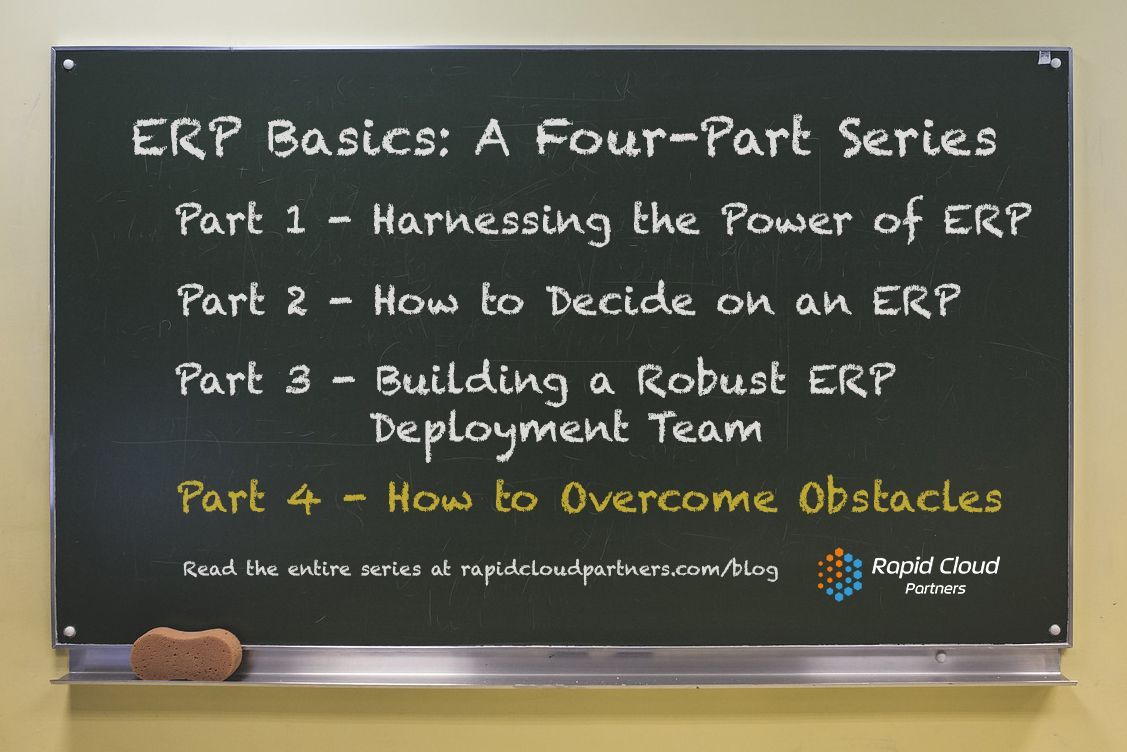The journey to successfully implementing an Enterprise Resource Planning (ERP) system is fraught with challenges. However, successfully deploying an ERP can significantly transform your business operations, enhance efficiency and bolster decision-making capabilities. Crucial to success are recognizing potential pitfalls and identifying hurdles during the process.
Following are 10 strategies to effectively minimize stumbling blocks and overcome obstacles on the path to success:
Robust Project Management - Preventing Derailment
Effective ERP implementation starts with strong project management. A competent project manager plays a vital role in keeping the project on track. Meticulous planning and oversight are crucial throughout the process to ensure all phases proceed smoothly and maintain transparent communication among all stakeholders. Every participant must be aligned and informed to facilitate a seamless implementation.
Effective Change Management - Overcoming Apprehension
The human aspect of any implementation cannot be overlooked, making effective change management essential. Preparing the team for change, managing expectations, and communicating clearly about the benefits and upcoming changes are vital to end-user engagement. This approach helps minimize resistance and fosters a positive reception towards the new system.
Comprehensive Training and Support - Minimizing Resistance
To ensure smooth user adoption, provide extensive training and support to all users. Training should be tailored to different user groups within the organization, ensuring that each user becomes comfortable and proficient with the new system. Ongoing support post-implementation helps address any emerging issues swiftly, enhancing user confidence and system effectiveness.
Accurate Data Migration and Integrity - Avoiding Discrepancies
Data is the lifeblood of any ERP system. Implement stringent controls for data cleansing, migration, and integrity to ensure that data transferred into the new ERP system is accurate and reliable. This prevents potential issues related to data inaccuracies that can disrupt business processes.
Realistic Scope and Budget Management - Preventing Overruns
It's essential to define clear project boundaries and budget limits from the outset. Avoid scope creep by regularly reviewing project scope and budget alignment throughout the implementation. This helps in managing resources effectively and keeping the project within financial bounds.
Careful Vendor Vetting and Selection - Preventing Misalignment
Choosing the right ERP vendor is crucial. Select a vendor that aligns well with your business needs and has a proven track record in implementing similar systems. Assess the vendor’s support structures and long-term viability of their solutions to ensure a lasting partnership.
High-Quality Testing - Minimizing Launch Bugs
Before going live, conduct thorough testing of the ERP system to verify the system functions as designed. This proactive approach helps identify and resolve issues before release, ensuring that the system operates smoothly upon deployment.
Engage All Stakeholders - Removing Blind Spots
Successful ERP implementation requires involvement of stakeholders from across the organization. This inclusion ensures that the system addresses the diverse needs and processes of respective departments, fostering a more integrated and efficient operational framework.
Continuous Improvement and Feedback - Preventing Re-work
ERP systems are not a one-time setup, but rather a continuous improvement process. Regularly collect user feedback and provide necessary updates and training. This ongoing engagement helps adapt the ERP system to evolving business needs and challenges, maximizing its effectiveness and lifespan.
Executive Buy-In and Support - Clearing Roadblocks
Gaining and maintaining the support of senior management is pivotal. Their endorsement not only secures the necessary resources for the ERP project but also underscores its strategic importance to the organization, enhancing overall commitment and alignment.
By implementing these strategies, businesses can effectively mitigate risks associated with ERP implementations and pave the way for an integration that meets organizational needs and supports future growth. Want to learn more about successful ERP deployments? Schedule an introductory call with RCP using this link: https://calendly.com/rapidcloudpartners/introductory-call






